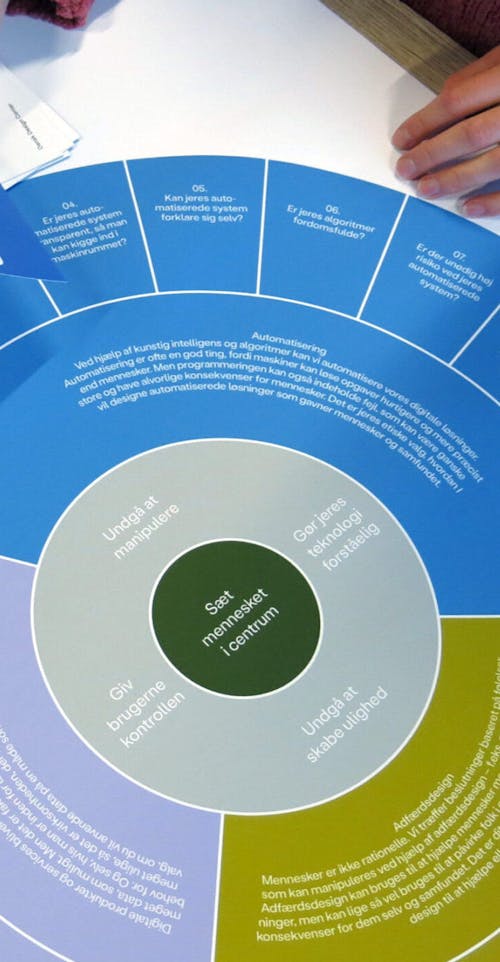
Photo: Oliver Herlitschek
I Came Back to Meta's Platforms – but only by Coincidence
07. Nov 2022After being hacked, our Director of Digital Transition, Christina Melander, experienced firsthand how she was left helpless and without options to get back her data and accounts from Meta. A chance encounter changed this, but the process clearly showed Christina three fundamental challenges with Meta’s way of handling the problem
On September 22, my Facebook account was hacked. Someone or something shared a child pornography video on my page. The Facebook algorithm did one thing right – it deactivated my account immediately. The only reason I know why my account was deactivated is that one of my friends (unfortunately) saw a glimpse of the content.
I will not spend time describing the entire and highly frustrating process of trying to activate my account again – allowing me to enter my Facebook, Messenger, and Instagram accounts – at least with the possibility of downloading my data and content. I recommend you read the article in the Danish tech magazine Radar Media on “my case.” It is in Danish, but if you use a translation service, I’m sure you get 90 percent of the story right.
First, I was fortunate – call it destiny or coincidence. I gave a presentation on ethics in digitalization and the Digital Ethics Compass a few days after the hacking. In the audience, I met this person from META, who offered to help me get my accounts back. This help is the sole reason why I came back – four weeks later.
"As my return is relatively new, I confess that I’m still processing my future presence (or not) on these platforms."
Christina Melander
But let me state the obvious problems.
High-profile politicians and famous people have special privileges
Hacking can happen to everybody! BUT if you are a high-profile politician or a famous person, you have special access to META and Facebook staff and will be assisted back to the platform within a short period of time. That is the core message in the Radar article linked above. And, of course, there’s the case of destiny that happened to me – being at the right place, at the right time, bumping into the right person. Most other people must accept being excluded forever and losing all of their data. That is a massive problem if you also run a business that depends on being on these platforms. It’s highly undemocratic and adds to inequality in our society.
The algorithm act as the sole judge
If you’ve had to contact Facebook, you have most likely learned that it seems to be impossible to get in touch with an actual person. There’s a glaring lack of customer support. But from Facebook’s point of view, why have customer support when you have billions of users that are considered products and not customers (forgive the irony). It makes so much sense to use algorithms and digital technologies for customer support and as help desks – but it is so wrong that an algorithm can act alone as the sole judge without the possibility of appealing – to a human. Thank God the EU Commission works hard to adopt regulations ensuring safety and fundamental rights in artificial intelligence by the AI Act.
Held personally responsible for content shared by hackers
But the worst to me personally is that I’m being held accountable for the content shared on my profile by hackers. And, in my case, extremely terrible content. The way the Facebook algorithm communicates leaves no doubt of the possibility of hacking. The clear message is: “You are out because you have violated the Facebook community rules”. And not “violated” in terms of me not securing my account well enough (regularly changing passwords and adding 2-factor authorization), but because of the content I have shared. That, to me, is so transgressive. Even when I entered Facebook again, a pop-up window informed me, “You have been deactivated because you have shared content with child pornography”. On another note, this was the first time Facebook told me the reason for the deactivation and the decision not to let me come back – according to the algorithm.
So now what?
I have the privilege at DDC to lead our work on the ethical design of digital solutions and mobilize initiatives that lead to a future where digital technologies are truly the force to set people and the planet free. A mission based on the fundamental principles:
- put humans at the center
- give users control
- avoid inequality
- avoid manipulation, and
- make technology understandable.
"With this in mind, how can I continue on these platforms? Do I 'need' to stay to be part of the movement fighting this? Or does this just make me another naive drop in the ocean?"
Christina Melander
We should all consider leaving these platforms immediately – at least if you ask Douglas Rushkoff, theorist and author of “Survival of the Richest – escape fantasies of the tech billionaires”.
And if you decide to stay:
- Create strong passwords on these platforms, change passwords regularly, and use 2-factor authorization.
- Require ethical standards on digital platforms and products. The Digital Ethical Compass can assist you in asking the right questions without being a digi-wizard.
- If you run your business on these platforms, make sure to have a plan B if you’re out, and download your data occasionally.
Christina Melander
Director of Digital Transition
| cme@ddc.dk | |
| Phone | +45 2946 2922 |
| Social |
Do you have questions about the article?

Can’t get enough of design and innovation? We hear you. And we have you covered.
Sign up for our newsletter to get the latest from our world delivered straight to your inbox.
Sign up for the ddc newsletter






